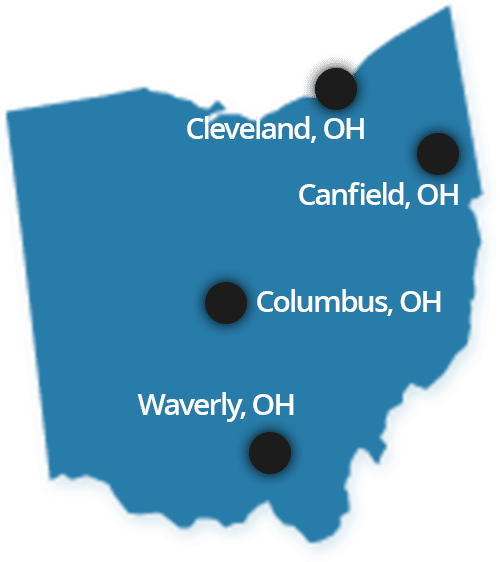The Ohio workers’ compensation system protects employees who are injured on the job or who contract occupational illnesses. Workers’ compensation provides medical care and substitute income for injured workers, even if the employer wasn’t negligent. However, the number of people working as independent contractors in Ohio and around the country is growing. And independent contractors are not covered by workers’ compensation.
Jobs like Uber driver and Task Rabbit experts are two of the most common types of independent contractors.
Independent Contractors and Worker’s Compensation
In 2018, an NPR/Marist poll revealed that one in five U.S. workers was working under contract rather than as an employee.
The same article suggested that within a decade, half of the U.S. workforce could be working as contractors.
Contract work allows workers greater flexibility and, in many industries, allows for higher pay.
But there are downsides as well: Contract workers don’t get employee benefits like health insurance and retirement accounts, and aren’t eligible for unemployment or workers’ compensation benefits. Injured workers classified as independent contractors may still be protected, though.
Some Misclassified Workers are Eligible for Workers’ Compensation
The general rule is independent contractors can’t get worker’s comp benefits, but what if you were misclassified?
Because of the difference in benefits and insurance coverage described above, it is to an employer’s advantage to classify a worker as an independent contractor.
However, the Internal Revenue Service and other state and federal agencies impose criteria for determining who is legally an independent contractor and who is an employee that has been misclassified as an independent contractor.
Both the state and federal governments have good reason to create and enforce standards for worker classification. The IRS estimates that millions of workers have been misclassified as independent contractors, at a cost of billions of dollars in employment tax revenues. And workers without access to employer-sponsored health insurance, workers’ compensation benefits, or unemployment insurance can become a burden on the state.
If it is determined that a contract worker has been misclassified and is legally an employee, then he or she may be eligible for workers’ compensation benefits just as if the employee had been properly classified all along.
Independent Contractors Can Pursue Personal Injury Claims
Unless there has been a misclassification, true independent contractors aren’t eligible for workers’ compensation benefits, but that doesn’t necessarily mean they’ll have to absorb the losses associated with a work-related injury. An injured contractor may have claims against the client or a third party, such as a negligence suit or product liability claim.
For example, an independent contractor working onsite at an employer’s premises who slips on a wet floor or is injured when poorly-stacked packages fall may have a negligence suit—much like any other personal injury claim—against the employer. An independent contractor, for example an Uber Eats driver, who is injured in an automobile accident may have a personal injury claim against another driver whose negligence caused the accident, or against the manufacturer or distributor of faulty automotive equipment that contributed to the accident.
In some cases, the analysis is even more complicated. For example, there are special rules for construction workers in Ohio, so it’s less likely that a construction worker will be properly classified as an independent contractor. However, a true independent contractor injured on a construction site could potentially have a negligence claim against another company working on the site, an equipment manufacturer, or the owner of the property.
Where the employer or another party was negligent, there are pros and cons to being classified as an independent contractor. Workers’ compensation benefits are available to an employee injured in the course of employment regardless of fault—an employee won’t have to prove that someone else is at fault or have their compensation limited because they was partially responsible for the accident. On the other hand, personal injury and product liability claims allow for a wider range of damages, meaning that the injured worker could receive significantly more compensation.
Get Information about Your Rights as Soon as Possible after a Work Injury
If you’re classified as an independent contractor, determining what type of compensation is available to you can be complicated and the information you receive from your employer won’t necessarily be reliable.
The company may have intentionally misclassified you as an independent contractor specifically to avoid responsibility for payroll taxes and other costs like workers’ compensation coverage. It’s also possible that the employer—especially a small employer—made an honest mistake in classification.
A knowledgeable attorney like Plevin & Gallucci with in-depth experience in both workers’ compensation claims and non-workers’ compensation work injury cases in Ohio can help you determine whether you may be eligible for workers’ compensation benefits or have other remedies available to you. Contact us today for a free, no-obligation consultation.

